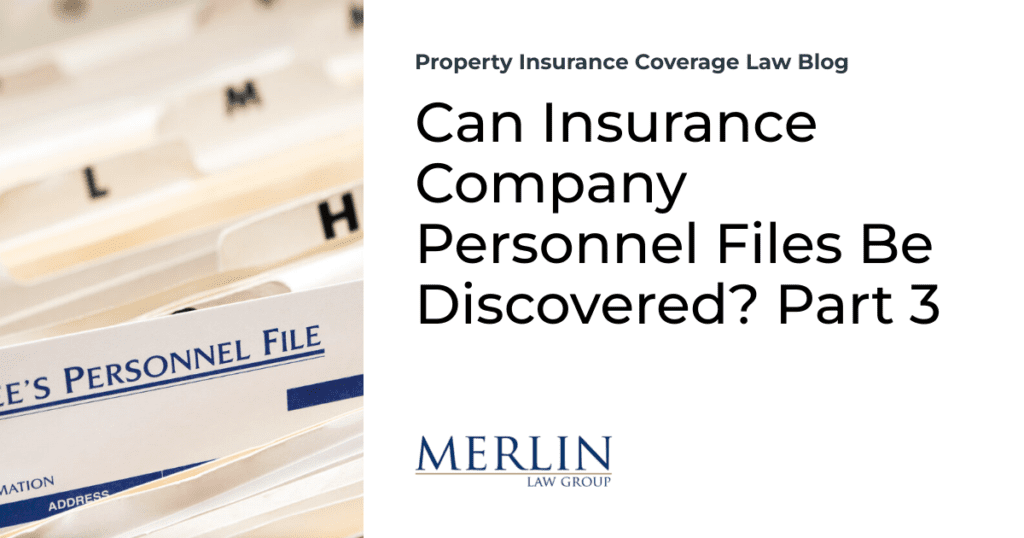Can Insurance Company Personnel Files Be Discovered? Part 3

This blog follows my previous two blogs, Can Personnel Files Be Discovered?, and Can Insurance Company Claims Adjuster Personnel Files Be Discovered? Part 2. In my first blog post on this topic, I explained that some courts have held that the information in personnel files is discoverable when it is “clearly relevant” and the information is “not otherwise readily obtainable.” In my second blog, I further explained how some courts have interpreted what is considered “clearly relevant.” In this blog post, I’ll focus on what courts have considered “not otherwise readily obtainable” in this context.
“Not Otherwise Readily Obtainable”
In Weller v. American Home Assurance Company, the plaintiffs sought only the personnel files of employees or the defendant’s representatives involved with handling, adjusting, or supervising the claims involved.1 The need for the files often outweighs the public policy against disclosure because “the personnel files possess an inherent reliability which cannot now be duplicated through any other source.”2 Due in part to the fact these files were contemporaneously and without litigation in mind, the court did not see how Plaintiffs could acquire equivalent material elsewhere, and because of this the files were “not otherwise readily available.”3
In Blount v. Wake Elec. Membership Corp., the plaintiffs requested the production of one of defendant’s employee’s personnel files.4 Although the defendants here argued that the employee’s prior deposition would provide the same information needed regarding the employee’s training experience, work record, and job suitability, the court found that the depositions would not have the same inherent reliability as the personnel files and as such the information was not otherwise readily obtainable.5
Because some courts have found these personnel files to have qualities that make them unique in their creation and inherent reliability, their contents and the insight they provide have been found to be something that cannot be duplicated and not otherwise readily obtainable. It is important to keep these considerations in mind when deciding what you will be requesting through discovery.
1 Weller v. Am. Home Assur. Co., No. 3:05-CV-90, 2007 WL 1097883, at *7 (N.D.W. Va. Apr. 10, 2007) (citing Blount v. Wake Elec. Membership Corp., 162 F.R.D. 102, 106 (E.D.N.C. 1993).
2 Id. at *6 (citing Blount, 162 F.R.D. at 106).
3 Id. at *7.
4 Blount, 162 F.R.D. at 105.
5 Id. at 106.



